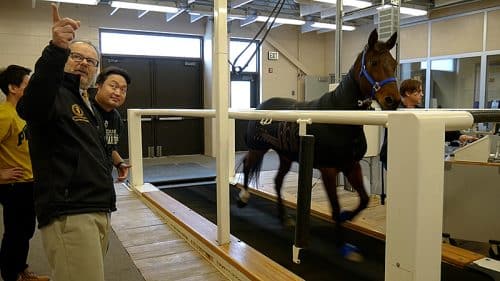This e-textile sensor can monitor health conditions in a hassle-free manner.
Purdue University biomedical engineers and veterinarians have developed a new remote horse slicker (a sort of coat) that can monitor a horse’s cardiac, respiratory, and muscular conditions. It is made from e-textiles technology and uses Bluetooth for communication.
Animals on farms also suffer from long-term chronic health conditions like asthma. Today, there are several sensors that can monitor these health conditions, but these require the use of messy adhesives to place the electrodes on the animal’s skin. Moreover, it makes the animal uncomfortable.

The Purdue team developed a dual regime spray to directly embed a pre-programmed pattern of functional nanomaterials into the slicker’s fabrics, according to Chi Hwan Lee, the Leslie A. Geddes Associate Professor of Biomedical Engineering in Purdue’s Weldon School of Biomedical Engineering. Adding e-textile qualities to clothes, according to Lee, allows scientists, researchers, and clinicians to take advantage of the garments’ already-existing ergonomic designs to achieve a commercial grade of wearability, comfort, air permeability, and machine washability.
“These specially designed e-textiles can comfortably fit to the body of humans or large animals under ambulatory conditions to collect bio-signals from the skin such as heart activity from the chest, muscle activity from the limbs, respiration rate from the abdomen or other vital signs in an extremely slight manner,” Lee said. “Our technology will significantly extend the utility of e-textiles into many applications in clinical settings.”
The next stage for the team is to establish continuous 24-hour monitoring for horses with chronic diseases or those getting care in a veterinary intensive care unit. “We believe that our technology will be helpful in diagnosis or management of chronic diseases,” Lee said. The capacity to monitor severe equine asthma, which affects 14% of adult horses, is an example of where this technology can be used.







